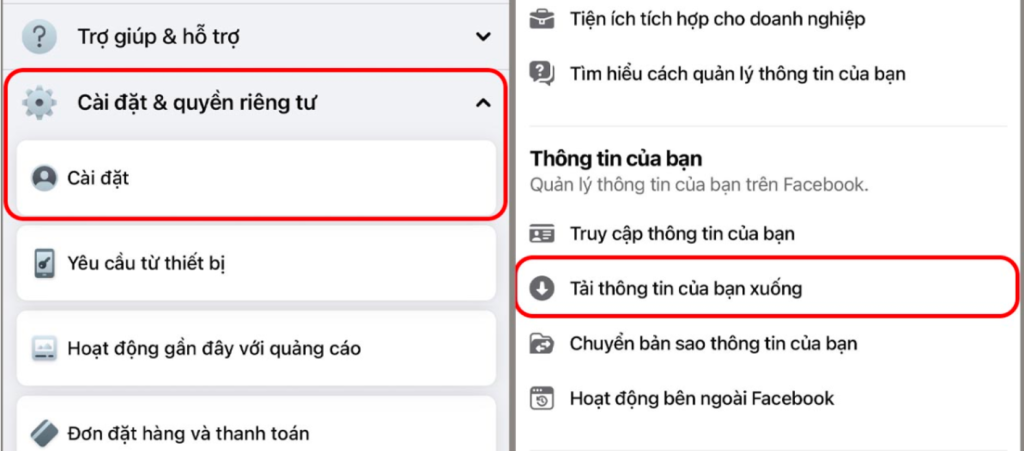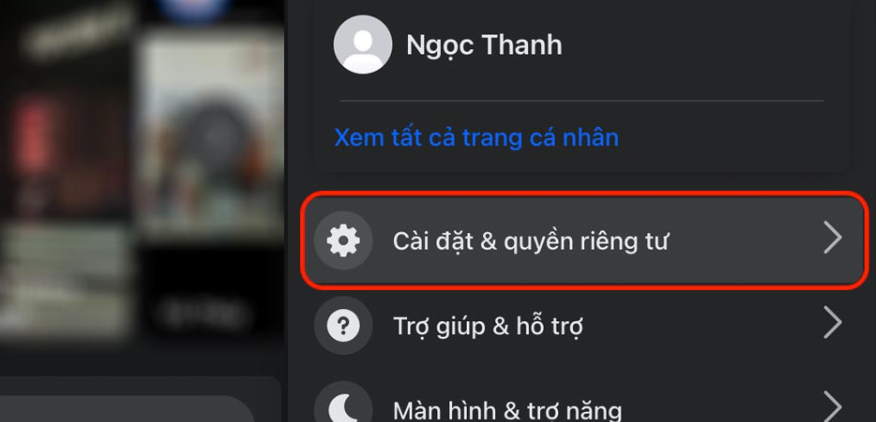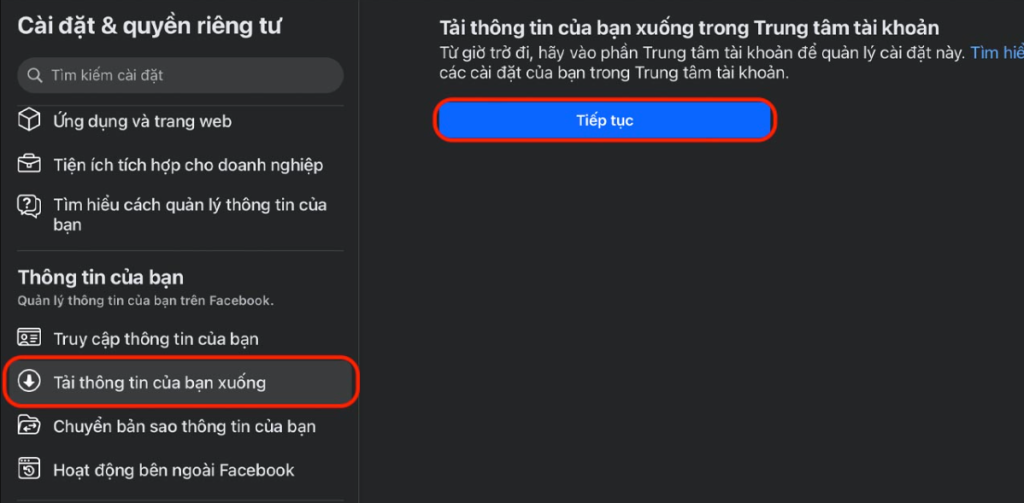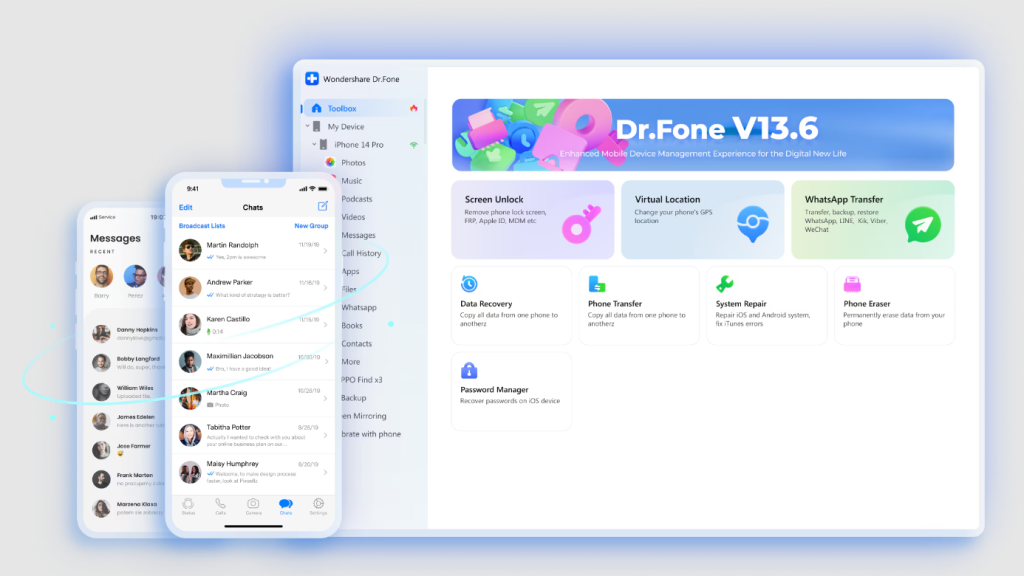Cách Khôi Phục Tin Nhắn Facebook Bị Xóa Trên Messenger Tại Việt Nam

Hướng Dẫn Khôi Phục Tin Nhắn Đã Xóa Trên Facebook Messenger
Trong thời đại công nghệ số, tin nhắn trên Facebook Messenger ngày càng trở thành một phần không thể thiếu trong giao tiếp hàng ngày. Tuy nhiên, có thể bạn đã từng bỏ lỡ những tin nhắn quan trọng mà vô tình xóa chúng. Đừng lo vì bài viết này sẽ hướng dẫn bạn cách khôi phục tin nhắn đã xóa trên Facebook Messenger một cách nhanh chóng và hiệu quả. Nguồn thông tin chi tiết được biên soạn từ bài viết trên QTCland.
Điều Kiện Khôi Phục Tin Nhắn Messenger
Trước khi bắt đầu khôi phục tin nhắn, bạn cần phải đáp ứng ít nhất một trong các điều kiện sau để đảm bảo khả năng phục hồi:
-
Tin nhắn chưa bị xóa toàn bộ khỏi Facebook: Nếu bạn đã xóa tin nhắn từ cửa sổ chat trên web Facebook, có thể nó đã không còn trong hệ thống sao lưu.
-
Cuộc trò chuyện đã lưu trữ: Những tin nhắn quan trọng nên được lưu trữ trước đó để dễ dàng khôi phục.
- Không xóa toàn bộ cuộc trò chuyện trên Messenger: Nếu toàn bộ cuộc trò chuyện đã bị xóa, tất cả bản sao lưu liên quan cũng sẽ không còn.
Để an toàn hơn, bạn có thể sử dụng cách chụp màn hình máy tính trước khi xóa tin nhắn quan trọng.
1. Cách Khôi Phục Tin Nhắn Messenger Trên iPhone
Bước 1: Tải thông tin cá nhân xuống

- Mở ứng dụng Facebook.
- Nhấn vào Menu > Cài đặt & quyền riêng tư > Cài đặt.
- Chọn Tải thông tin của bạn xuống.
Bước 2: Yêu cầu bản sao tin nhắn

- Chọn Tiếp tục > Nhấn Yêu cầu bản tải xuống.
- Lựa chọn tài khoản và trang cá nhân > Chọn Tin nhắn.
- Nhấn Gửi yêu cầu và đợi Facebook xử lý.
2. Cách Khôi Phục Tin Nhắn Messenger Trên Máy Tính
Bước 1: Truy cập cài đặt Facebook

- Đăng nhập Facebook trên trình duyệt web (MacBook hoặc PC).
- Nhấn vào avatar > Cài đặt & quyền riêng tư > Cài đặt.
Bước 2: Tải dữ liệu

- Chọn Tải thông tin của bạn xuống > Nhấn Yêu cầu bản tải xuống.
- Lựa chọn tài khoản và loại thông tin cần khôi phục > Nhấn Tin nhắn > Gửi yêu cầu.
3. Cách Khôi Phục Tin Nhắn Từ Website Messenger
Bước 1: Truy cập kho lưu trữ
- Truy cập website Messenger.com và đăng nhập.
- Nhấn vào biểu tượng Kho lưu trữ ở giao diện chính.
Bước 2: Khôi phục tin nhắn
- Chọn đoạn chat muốn khôi phục > Nhấn vào biểu tượng dấu ba chấm > Chọn Khôi phục đoạn chat.
4. Sử Dụng Phần Mềm Thứ Ba

Nếu các phương pháp trên không hiệu quả, bạn có thể sử dụng phần mềm hỗ trợ như Wondershare Dr.Fone.
Bước 1: Tải và cài đặt phần mềm
Bước 2: Kết nối thiết bị
- Kết nối iPhone với MacBook bằng dây cáp.
- Mở ứng dụng, chọn Toolbox > Recover Data from iOS Device.
Bước 3: Quét và khôi phục
- Chọn Message & Attachments > Nhấn Start Scan để quét tin nhắn đã xóa.
- Lựa chọn tin nhắn cần khôi phục và hoàn tất quá trình.
Lời Kết
Với các cách khôi phục tin nhắn đã xóa trên Messenger đã được trình bày, hy vọng bạn sẽ tìm thấy các tin nhắn quan trọng của mình một cách dễ dàng. Nếu bạn thấy bài viết này hữu ích, đừng quên chia sẻ với bạn bè và người thân để cùng nhau có những kiến thức bổ ích. Nếu gặp khó khăn trong quá trình thực hiện, hãy để lại bình luận ở dưới để được hỗ trợ kịp thời.
Hy vọng bạn sẽ khôi phục thành công các tin nhắn quan trọng!
Nguồn Bài Viết Tin nhắn Facebook bị xóa, làm sao khôi phục tin nhắn đã xóa trên messenger



